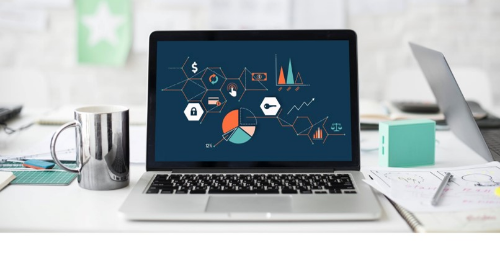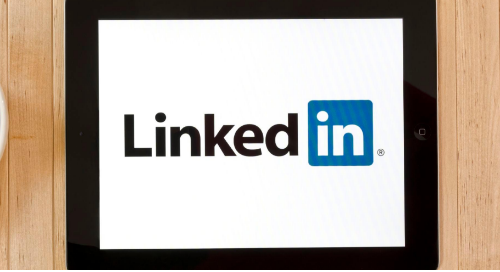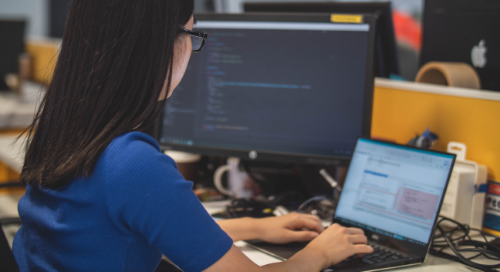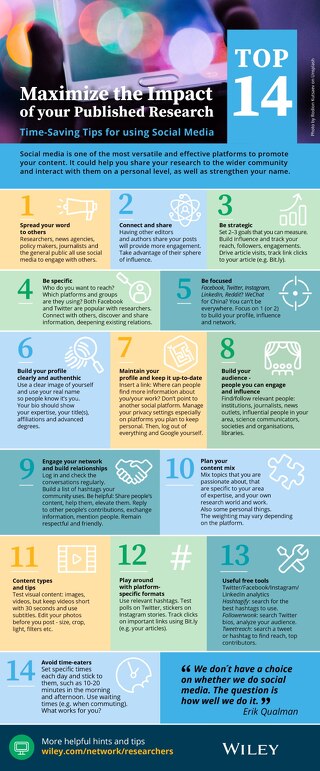how-early-career-researchers-are-engaging-with-policymakers-virtually
April 01, 2021
The response to COVID-19 spotlights the crucial role of research in tackling the world’s most serious problems. Governments have been at the center of the storm, drawing on the expertise of researchers to make evidence-based decisions that can save lives. Wiley was excited to be involved again with Sense About Science’s annual Evidence Week in U.K. Parliament in November 2020, with our partners at the British Psychological Society (BPS). Like many things during the pandemic, it was entirely virtual. So, what does advocacy work look like over video? Mariam Kazem-Malaki and Joshua Gascoyne at Sense about Science talked with four members of their Voice of Young Science network to hear their experience.
Founded by Sense about Science in 2018, Evidence Week is an opportunity for researchers, constituents, and parliamentarians to come together to discuss evidence in policy making, as well as to share ideas, techniques, and resources to help decision-makers to understand and interrogate that evidence. Parliament’s role is to scrutinize what government does, and to understand the policy issues that affect their constituents. Evidence Week was launched to ensure that Members of Parliament (MPs) have their hands on the best tools and information to be able to hold the government accountable. This year, over 100 MPs, peers and parliamentary staff got involved in the event.
To kick off Evidence Week, 29 community groups and members of the public led a discussion on how well-equipped Parliament is to use evidence to hold the government to account. During the event, members of the public questioned their local MPs, Parliamentary Select Committee chairs, and a panel of experts about the evidence on a diverse range of topics, from misinformation to climate change. Each constituent was looking for the answer to the same underlying question: what evidence is being used to inform policies that affect our everyday lives and how?
Four members of Sense about Science’s Voice of Young Science network joined the opening event to ask a question. Here are some of their thoughts:
- Shamma Rattan Booth, Oxford Brookes University, asked John Howell MP: ‘With a rise of misinformation online, how much responsibility should MPs and the government have towards actively seeking evidence and calling out false claims?’
“After supporting Evidence Week in 2019, I felt that it was vital to get involved in 2020 as misinformation surrounding Covid-19 is rampant. I felt the Evidence Week platform would allow me to directly connect with my local MP John Howell, as well as other like-minded individuals to address my concerns. As an early career researcher, I am learning the importance of backing up my own research with evidence and being transparent about my findings. I feel that parliamentarians need to do this, but it will only be achievable when researchers, communities and parliamentarians all work together. By sharing our expertise, resources and insight, we can produce sound policies backed by evidence.”
- Tom Clegg, Institute of Marine Research (Norway), asked Craig Mackinlay MP: ‘The government has proposed changes to EU fisheries policy countering-acting criticism of the policy during the Brexit process. What tools will Parliament use to monitor the effectiveness of these changes to ensure sustainable fisheries?’
“I haven’t contacted my local MP before and wouldn’t have considered contacting Craig Mackinlay about fishing policies before the Evidence Week opening event. For my question, I decided immediately on the topic of fisheries as it is my research area. However, that meant I had difficulties with formulating a question that would be answered to my satisfaction but without being so specific that an MP could not possibly know enough to provide an answer. Using evidence helps to understand what is currently known about a topic, and arguably more important, what is not known. If done properly, the involvement of independent experts and transparency in the policymaking process will help to expose decisions based on opinion or ideology, and allow the public and experts to scrutinise decisions and hold decision-makers to account.”
- Emma Braysher, University of Surrey, asked Munira Wilson MP: ‘How is the pandemic affecting our progress towards the net-zero carbon target and what is being done to make sure we are on track?’
“I’ve never met an MP or done anything like this before. Being able to communicate directly with MPs and those on the opening event panel was a powerful opportunity. It's crucial for the public to be listened to on the important issues that were discussed [during the opening event]. Having a scientific background, my way of thinking and reasoning is very much evidence-based, and I believe this is an important part of the decision-making process. The use of evidence is relevant to many areas of policy, allowing policymakers to make reliable and informed decisions that the public can have confidence in.”
- Claire Price, Swansea University, asked Gerald Jones MP: ‘Can MPs measure whether science communicators would aid effective communication of evidence to the general public?’
“It was an incredible experience, and it was great to know that Gerald Jones MP was on the same page as me in support of using science communicators to get the message out there about the use of evidence. During the opening event, it was interesting to hear from Penny Young, House of Commons Librarian. I completely understood Penny’s point about the public listening to people they trust, but I think that providing information in an accessible way can also make a difference. The work that is done in Parliament affects every single one of us, now and in the future, and in many cases it can make the difference between life and death. It is, therefore, important that decisions are based on solid evidence, that the government and the public know that they can back up the decisions they are making to cement trust.”
In 2020, the challenges of policy making based on new and evolving science and evidence became part of the day-to-day lives of all people around the UK and the world.
"This pandemic has shown us that people are really happy and willing to engage with evidence and data." - Ed Humpherson, Director General for Regulation at the UK Statistics Authority
Evidence Week has not only provided parliamentarians with access to the best tools for understanding and scrutinizing evidence, but it also demonstrated that members of the public and researchers care deeply about how evidence is used by Parliament to inform policy making. Evidence Week makes the case to MPs that they should care, too.
About the Authors
Mariam Kazem-Malaki, Policy and research manager, Sense about Science
Mariam joined Sense about Science in 2020 as the policy and research manager. After a career working in the UK parliament and local government she developed a passion for engaging people in subjects that might otherwise seem inaccessible to them. Mariam delivers our policy activity, including Evidence Week and Transparency of Evidence. She also leads on our response to policy developments, advocating for the public interest in science and evidence.
Joshua Gascoyne, Programmes officer, Sense about Science
Joshua joined the team in February 2020 on an 8 week internship, and was appointed programmes officer on it’s completion in April 2020. He is enthusiastically supporting the Ask for Evidence campaign and Voice of Young Science programme, working to encourage other early career researchers to discuss the impact of their research on society.
He previously studied Biochemical Engineering at the University of Birmingham before a Ph.D. in Microbiology at the University of Nottingham.














